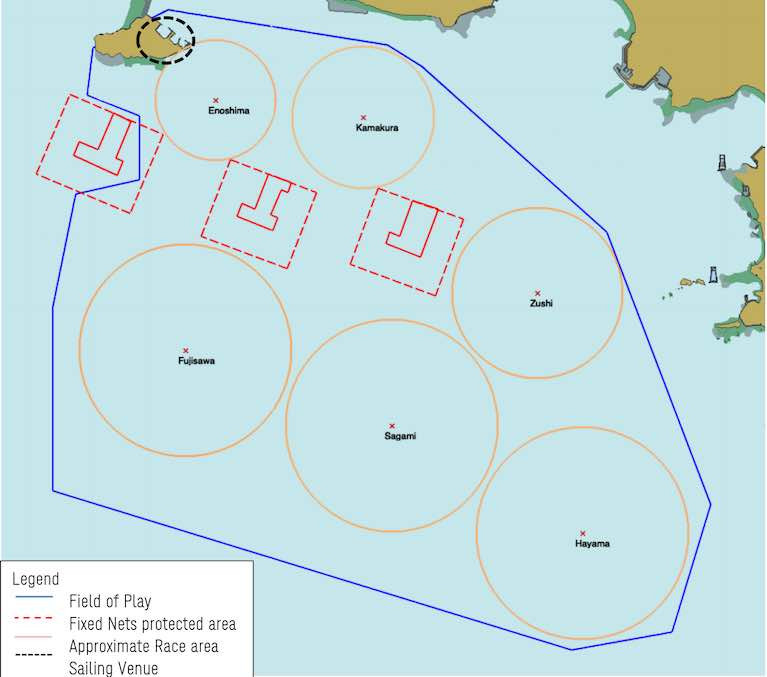Displaying items by tag: Tokyo 2021
Olympic Sailing Regatta Tokyo 2021 Notice of Race Published
The Notice of Race of the Tokyo Olympic Games has been published by World Sailing, the sailing regatta will take place from July 25 to August 4.
Following the postponement of the Tokyo 2020 Olympic Games to 2021, World Sailing has released the Notice of Race for the Olympic Sailing Competition.
The competition will run out of Enoshima Yacht Harbour in Japan and will commence on 25 July with the concluding Medal Race on 4 August.
The Notice of Race states the key conditions for the 10 sailing events at the Tokyo 2020 Olympic Games.
The Men's 470, Women's 470, Laser, Laser Radial and Finn fleets will sail ten races as part of their opening series with a concluding Medal Race. Twelve races will be held for the 49er, 49erFX, Nacra 17, Men's RS:X and Women's RS:X fleets ahead of their Medal Races.
Included within the Notice of Race are details on the rules, regulations, entry and qualification guidelines, format, scoring, schedule, venue and courses.
Athletes, coaches, trainers and other team officials shall comply with the Olympic Charter, as well as with the World Sailing rules, in order to be eligible for participation in the Tokyo 2020 Olympic Sailing Competition, and shall be entered by a National Olympic Committee (NOC).
Download the full notice of race below as a PDF
Olympic Radial Sailor Annalise Murphy on Tokyo 2021 Training Plans
Annalise Murphy, (30), the only Irish sailor nominated so far for the 2021 Olympic Regatta, has spoken of the difficulties presented by COVID-19 in attempting to train at the Tokyo Regatta venue.
The fact that the Olympics is going ahead at all is positive news for the Irish star but after a year of continuous training at home, and little in the way of competition, it has been a frustrating scenario for the National Yacht Club sailor in her bid for Olympic gold next year.
She told a special presentation of the Irish Laser class at its recent AGM that she 'obviously would love to train in Tokyo before the Olympics but the reality is that it might be very difficult to do that'.
Firstly, Murphy says, there is the question about whether international athletes will be allowed into Japan at all during the current lockdown, then there is the level of quarantining required once in Tokyo. "If we have to spend two weeks quarantining in a hotel room in order to just do a two-week training camp then the reward may not really be worth the loss of all that time".
 Rio Silver medalist Annalise Murphy was crowned 2020 Italian Olympic Week champion in September, just one of a few international Radial regattas held in 2020
Rio Silver medalist Annalise Murphy was crowned 2020 Italian Olympic Week champion in September, just one of a few international Radial regattas held in 2020
As a result, the Rio silver medalist says, in reality, she 'doesn't really know what is going to happen'.
'We just have to be happy to take it one step at a time. If the opportunity presents itself to go out to Japan beforehand, that's brilliant but if not I can’t worry about it too much because no one else can go out there either'.
Her plan is to stay positive over the winter and 'roll with whatever happens', she concludes.
Team Ireland Changes Focus to Tokyo 2021
As news of the postponed Olympic Games spread, Team Ireland athletes came together to demonstrate solidarity, optimism and hope. Right now, the biggest battle is not being fought in the pitches, courts and arenas, but it is the fight against the Covid-19 pandemic that has swept across the world. There are bigger things at stake, and sport is taking a back seat.
On hearing the news about the postponement, some of Ireland’s highest-profile Olympic athletes across the sports came together to send a message of support to Tokyo let by Tokyo Chef de Mission for Team Ireland, Tricia Heberle.































































